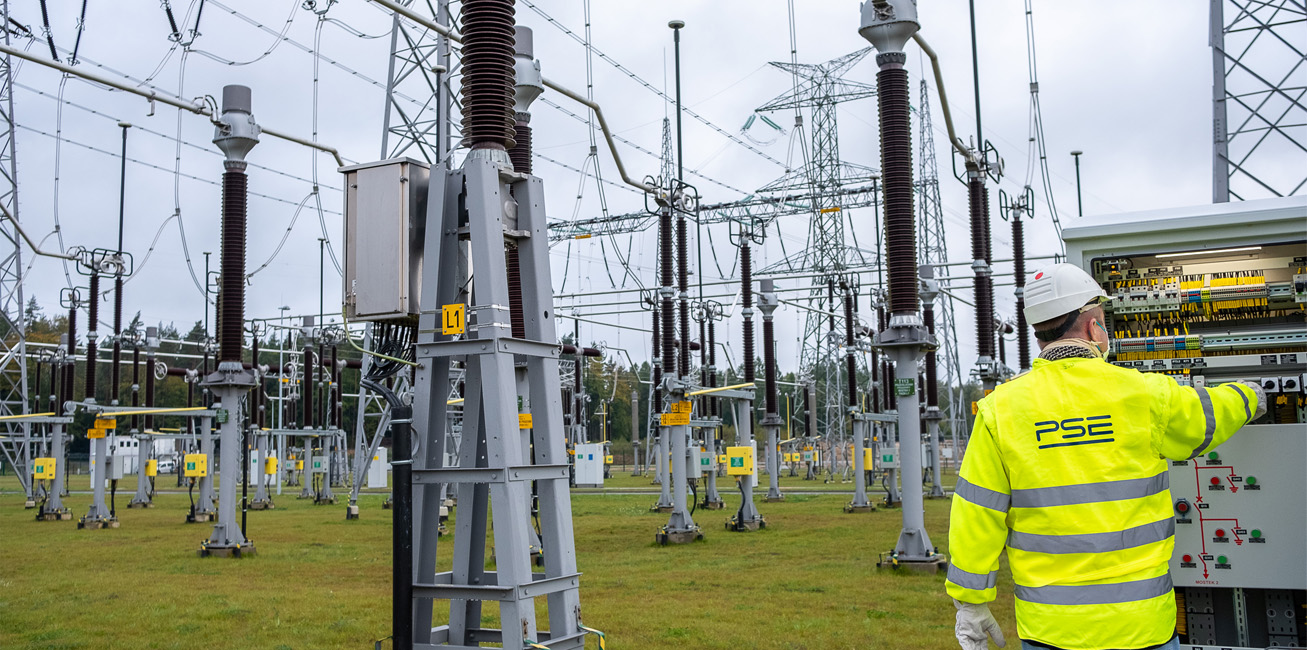Actions taken by the CN/RCN service in an emergency situation include:
- analysing the causes, location, and magnitude of the disturbance,
- organising measures to secure the location of the incident,
- deciding how the disturbance will be resolved,
- having available resources of Operations Teams (ZES) and Specialist Engineers (I-SPEC) to organise the elimination of the disturbance,
- monitoring and coordinating work related to the elimination of the disturbance.
In the event of a widespread inter-area failure (between the areas of responsibility of the territorially competent RCNs), individual RCNs cooperate with each other. In this case, the Monitoring Centre coordinates all activities of PSE's operating services (from different areas) and subcontractors working on behalf of our organisation.
In order to maintain the continuity of operations, the CN/RCN operations monitoring services are prepared for a possible crisis situation forcing them to leave their primary workplace without abandoning the performance of their core tasks and, above all, for carrying out uninterrupted monitoring of the operation and technical condition of components of network assets. Full continuity of operation is maintained through back-up CN/RCN locations put into operation, which provide functional redundancy for the primary centres. Currently, due to the prevailing pandemic conditions in the country, the activities of the CN/RCN services are carried out in a dispersed manner, i.e. in both primary and back-up locations, in compliance with the sanitary and epidemiological requirements in force.
In the process of maintaining network assets, CN/RCN operations monitoring services are supported by Operations Teams (ZES) and Specialist Engineers (I-SPEC), who perform tasks directly on the equipment.
On the national level, 28 Operations Teams (ZES) were set up in the structures of our organisation for individual ZKOs, covering subordinated substations:
- ZKO Warsaw – 6 Teams: ZES Janów (3 substations), ZES Miłosna (4 substations), ZES Mory (4 substations), ZES Ostrołęka (5 substations), ZES Płock (3 substations), ZES Rogowiec (3 substations);
- ZKO Radom – 5 Teams: ZES Lublin (5 substations), ZES Kielce (3 substations), ZES Kozienice (2 substations), ZES Połaniec (4 substations), ZES Rzeszów (3 substations);
- ZKO Katowice – 7 Teams: ZES Bujaków (4 substations), ZES Byczyna (4 substations), ZES Dobrzeń (4 substations), ZES Joachimów (4 substations), ZES Łagisza (4 substations), ZES Skawina (5 substations), ZES Wielopole (4 substations);
- ZKO Poznań – 6 Teams: ZES Czarna (4 substations), ZES Krajnik (5 substations), ZES Mikułowa (2 substations), ZES Pątnów (3 substations), ZES Plewiska (6 substations), ZES Wrocław (6 substations);
- ZKO Bydgoszcz – 4 Teams: ZES Bydgoszcz (5 substations), ZES Gdańsk (5 substations), ZES Olsztyn (2 substations), ZES Slupsk (4 substations).
ZES field staff ensure safe performance of switching, diagnostic and maintenance operations on substation and line facilities. The high level of their competence and specialised skills is maintained through systematic and regular process training. Equipped with personal health and safety protective equipment and suitably adapted equipment (including operating vehicles), ZES staff carry out their tasks to the highest safety standards.
